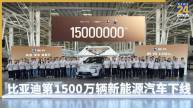PLI Scheme: The Indian government has announced plans to introduce amendments to the Rs 26,000-crore production-linked incentive (PLI) scheme aimed at the automotive sector. Additionally, it intends to extend the duration of the zero-emission technology program by one more year, both in response to requests from the industry.
Mahendra Nath Pandey, the Minister of Heavy Industries, revealed that the government is open to considering changes to the PLI scheme in line with industry demands. Among these demands is the proposal to distribute PLI incentives on a quarterly basis instead of the current annual payments. Pandey expressed confidence that the PLI scheme would not only incentivize companies but also foster new investments, technological advancements, skills, scale, and job creation in the Indian auto sector.
The extension of the zero-emission technology program will prolong the originally planned five-year scheme, which was slated to run from 2022-23 to 2026-27. The extension will now encompass the fiscal year 2027-28. As per the scheme’s current structure, incentives are applicable for specific sales of Advanced Automotive Technology (AAT) products, including vehicles and components, manufactured in India from April 1, 2022.
To bolster the effectiveness of the PLI scheme, the government intends to expand the number of agencies assessing domestic value addition (DVA) from two to four. These additional agencies will be established in Indore and Chennai. The auto PLI scheme mandates companies to ensure a domestic value addition of at least 50% in their production.
The PLI scheme had already witnessed significant investments, with companies committing Rs 67,690 crore against the initial target of Rs 43,500 crore. Among the beneficiaries of the scheme are major vehicle manufacturers like Mahindra, Tata Motors, Hyundai, Toyota Kirloskar, Ola Electric, and Ashok Leyland, alongside 67 component manufacturers.
Kamran Rizvi, the Secretary of Heavy Industries, emphasized that the government is receptive to the industry’s concerns and aims to strike a balance between industry demands and adherence to domestic value-addition norms. Companies participating in the scheme have also raised specific concerns, including exemptions related to the localization of semiconductors and the equitable distribution of incentives between vehicle manufacturers and component makers.













